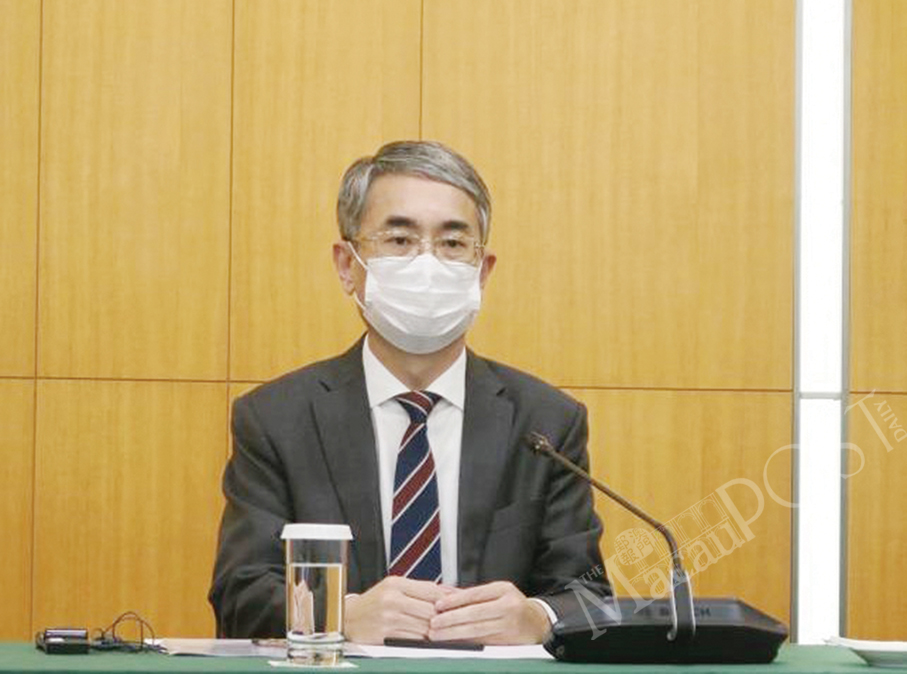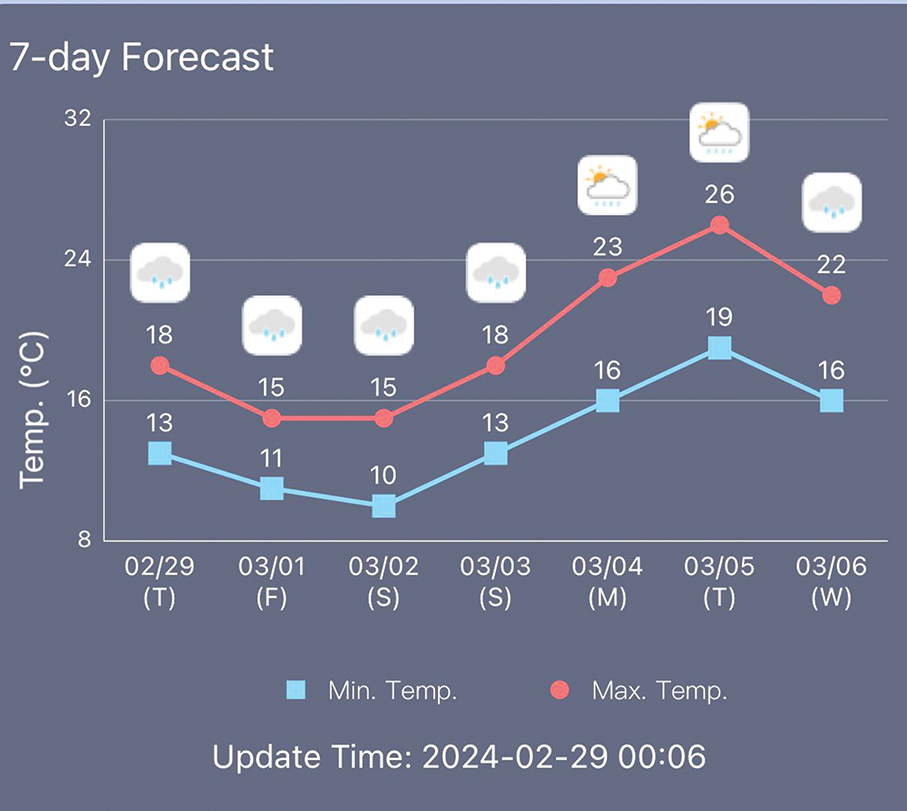A gaming industry amendment bill released by the government on Friday proposes to reduce the duration of gaming concessions from 20 to 10 years and to cap by law the number of gaming concessions at six, while prohibiting the granting of subconcessions and the leasing out of gaming rooms by casino operators.
Details of the bill were revealed during a one-hour press conference headed by Secretary for Administration and Justice André Cheong Weng Chon who also disclosed that the government does not plan to raise its gross gaming revenue tax rate from the current 35 percent, which has been in place for over two decades.
The bill aims to amend the Gaming Industry Law which was enacted in 2001.
According to Cheong, the bill proposes that the government can grant up to six gaming concessions by public and open tender for 10 years, with a possible extension of up to three years. The current law allows gaming concessions to last up to 20 years, with the possibility of being extended to up to 25 years.
Cheong also said that subconcessions will be prohibited by the new law.
Currently, Macau’s gaming industry comprises three concessions (SJM, Galaxy and Wynn) and three subconcessions (Sands, Melco and MGM). Each of the subconcessions was sold by the three concessionaires.
The current law states that the government can grant up to three gaming concessions. The law is silent on the granting of subconcessions.
Cheong stressed that the bill has taken into account the views expressed during a public consultation process late last year. After the bill’s discussion by the government’s top advisory Executive Council, of which Cheong is the spokesman, it was passed by the government to the Macau Legislative Assembly (AL) on Friday for debate and vote.
Bill sent to legislature
The bill must be passed by the legislature in order to become law. Lawmakers’ review of the bill can lead to some changes.
Cheong said the government hoped that the legislature could pass the bill as soon as possible, considering that the three gaming concessions and three subconcessions expire on June 26 and that the government will need to invite bids to tender for the up to six concessions. However, Cheong was quick to add that, if need be, the tendering process could be postponed and, consequently, the current concessions and subconcessions could be extended for a while. He declined to reveal the government’s timeline for the two possible scenarios.
5 billion pataca capital
According to Cheong, Macau’s future gaming concessionaires must have a paid-up share capital of 5 billion patacas, compared to the just 200 million patacas currently required. He also said that all casinos must be situated in real estate owned by the concessionaires. Gaming operators’ so-called “satellite casinos” housed in buildings that they don’t own will be given a transition period of three years to regularise their situation, provided that their operators are among the up to six winners of the upcoming bidding process.
Cheong also said the bill proposes that each concessionaire’s managing director must hold at least 15 percent of the company’s paid-up share capital and have permanent residence status in Macau. Currently, the managing director must be a permanent resident as well but only needs to hold 10 percent of the paid-up share capital.
According to the press conference, the city’s future gaming concessionaires can only list up to 30 percent of their shares on the stock exchange.
Macau’s public interest & national interest
Cheong said that all bids for the future gaming concessions must meet a range of conditions such as being in line with Macau’s public interest, the national interest and the city’s appropriate economic diversification drive. He said they must also meet the government’s requirements of ensuring the gaming industry’s sustainable development and commitment to corporate responsibility.
The policy secretary also said that under the bill the government will be able to strengthen its supervision of the gaming industry, pointing out that casino operators “are not common companies.”
Experts and commentators have pointed out for years that Macau’s casino permits are not conventional business licences but concessions granted by the government that, to a certain degree, are similar to those granted to public utilities.
Cheong said that all the current six gaming operators have a chance to win the upcoming tenders. Three of the operators involve US business interests.
No dividend distribution control
The policy secretary also said that under the bill no government representative will sit on the concessionaires’ management boards. The government had initially proposed that possibility during its public consultation process last year. However, he stressed that the gaming concessionaires will have to keep the government regularly posted in detail on any major financial issues. The consultation paper’s suggestion that the concessionaires would require the government’s authorisation for distributing dividends did not make it into the bill either. The proposed position of a government representative on the board and dividend authorisation requirement were the government consultation paper’s most controversial points.
Cheong also said that the government would keep its direct gaming tax rate unchanged at 35 percent of the concessionaires’ gross gaming revenues. He said the additional payment of 5 percent of casino operators’ gross gaming revenues as “contributions” (dues) for the government’s social, cultural and other activities would also remain unchanged.
The policy secretary stressed on various occasions during the press conference that all the concessionaires’ casinos must be housed on premises that are owned by them, adding that the concessionaires are barred from leasing their gaming facilities out to others.
Currently, many so-called VIP rooms for high-stakes gamblers are said to have been leased out by casinos to junket operators.
Cheong said that the government planned to introduce a separate bill on the tighter supervision of junket operators, whose operations are currently regulated by an administrative regulation (by-law) only.
Cheong also said repeatedly that the bill aims to ensure the “more healthy” development of the gaming industry in line with Macau’s public interest, the national interest and the city’s ongoing efforts to diversify its economy, which continues to be marked by its overdependence on the gaming industry.
Cheong also said the government was determined to control the size of the gaming industry to ensure that it benefits Macau as a whole.
According to the latest available data from the Gaming Inspection and Coordination Bureau (DICJ), Macau’s gaming industry consists of 42 casinos run by three concessionaires and three sub-concessionaires, with 6,302 gaming tables and 11,449 slot machines.
Nearly 56,000 gaming workers
The gaming sector had 55,768 full-time employees at the end of the second quarter of last year, according to the latest available figures from the Statistics and Census Bureau (DSEC), accounting for about 12 percent of Macau’s total labour force at that time.
According to statistics released by Macau’s Gaming Inspection and Coordination Bureau (DICJ) early this month, Macau’s gross gaming revenue (GGR) rose 43.7 percent to 86.8 billion patacas last year.
The figure was a marked improvement from 2020 when GGR plummeted 79.3 percent to 60.4 billion patacas.
Macau confirmed its first COVID-19 case in January 2020. In pre-pandemic 2019, GGR dropped 3.4 percent year-on-year to 292.4 billion patacas. In 2018, GGR increased 14 percent to 302.8 billion patacas.
Macau’s games of luck generated record GGR of 360.7 billion patacas in 2013. Last year’s GGR accounted for 24 percent of the one in the record revenue of 2013.
The gaming sector had a share of 51 percent of Macau’s gross domestic product (GDP) in pre-pandemic 2019. In 2020, its GDP share was down to 21.3 percent due to the strong impact of the COVID-19 pandemic on Macau’s economy, the gaming sector in particular, according to DSEC data.

Secretary for Administration and Justice André Cheong Weng Chon addresses Friday’s Executive Council press conference at Government Headquarters. Photo courtesy of TDM
This photo taken last night shows some of Macau’s best-known casinos. Photo: Tony Wong








